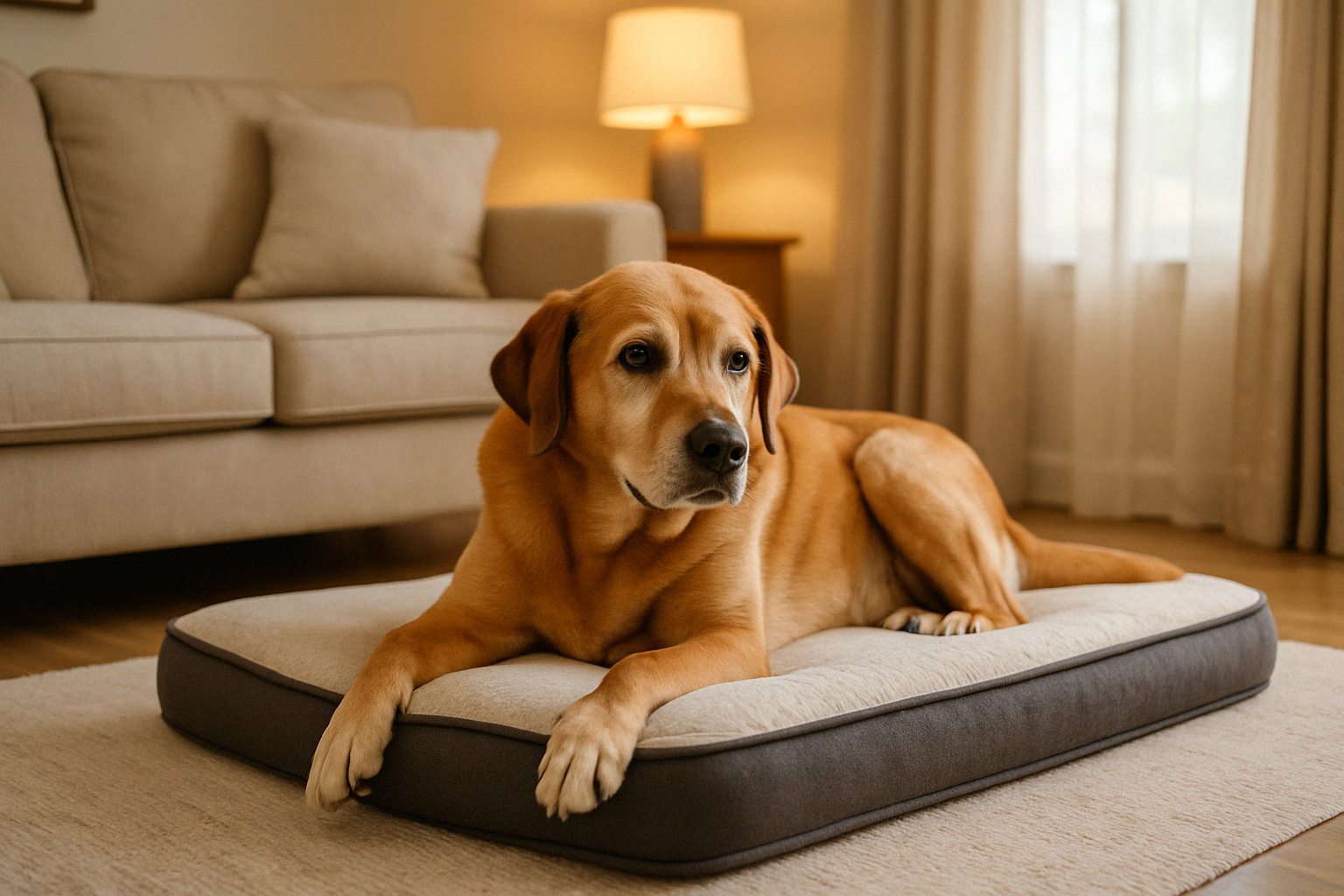As dogs grow older, their needs change — and so deve our care. Whether your pup is starting to slow down or already in their senior years, understanding how to support them physically, emotionally, and nutritionally is essential to giving them a comfortable, happy life.
In this guide, you’ll learn how to care for a senior dog with love, empathy, and practical adjustments.
When Is a Dog Considered a Senior?
While it depends on size and breed, general guidelines are:
- Small dogs: 10–12 years old
- Medium dogs: 8–10 years old
- Large and giant breeds: 6–8 years old
You may notice:
- Slower movement
- Graying fur (especially around muzzle)
- Sleeping more
- Decreased hearing or vision
- Less interest in intense activity
Recognizing these signs early helps you adapt their routine for maximum comfort.
1. Adjust Diet for Senior Needs
Senior dogs need:
- Fewer calories (due to lower activity)
- More fiber for digestion
- High-quality protein to maintain muscle mass
- Supplements like glucosamine, chondroitin, or fish oil for joints
Ask your vet about switching to a senior-specific dog food, and monitor weight closely.
Overweight dogs are more likely to suffer from arthritis, heart disease, and diabetes.
2. Make Vet Visits More Frequent
While adult dogs may see the vet annually, seniors benefit from checkups every 6 months to:
- Monitor organ function (bloodwork, urine tests)
- Check for early signs of arthritis, cancer, or dental disease
- Adjust medications or diets as needed
- Track weight and mobility changes
Early detection makes a big difference in senior care.
3. Keep Them Moving — Gently
Exercise is still important, but modify intensity:
- Take shorter, more frequent walks
- Avoid high jumps or stairs (use ramps if needed)
- Gentle play with soft toys
- Swimming is excellent for low-impact exercise
The goal is to maintain mobility without overexerting them.
4. Provide Mental Stimulation
Cognitive decline (doggy dementia) can occur, but stimulation helps:
- Practice easy commands or new tricks
- Use scent-based games (like hiding treats)
- Offer puzzle toys
- Maintain a daily routine to reduce confusion
- Keep their environment consistent
Mental enrichment is just as important as physical health for seniors.
5. Adapt Your Home for Comfort
Make your home senior-friendly:
- Add non-slip rugs or mats on slippery floors
- Provide a soft orthopedic bed
- Elevate food and water bowls
- Keep everything easily accessible
- Avoid rearranging furniture too often (helps with memory loss)
Small adjustments = big comfort for aging dogs.
6. Maintain Dental and Grooming Care
Dental disease is common in senior dogs. Maintain with:
- Brushing teeth 2–3 times a week
- Dental chews or vet-approved rinses
- Regular vet cleanings
Also:
- Brush fur gently (older skin is sensitive)
- Keep nails trimmed
- Watch for lumps, skin changes, or signs of pain during grooming
Good hygiene = better quality of life.
7. Support Emotional Needs
Senior dogs often:
- Become more dependent
- Develop anxiety when alone
- Need more affection and reassurance
- Feel confused in unfamiliar environments
Give them extra love, calm routines, and be patient when they move slower or forget a few things. They’ve earned your tenderness.
8. Consider Supplements (with Vet Approval)
Helpful additions may include:
- Glucosamine and chondroitin for joints
- Fish oil for heart, skin, and brain
- CBD (vet-approved) for pain and anxiety
- Probiotics for digestion
Never give human supplements — always check with your vet first.
9. Monitor for Warning Signs
Watch for sudden changes such as:
- Loss of appetite
- Difficulty breathing
- Increased drinking or urination
- Disorientation or confusion
- Lameness or limping
- Trouble standing or walking
These may signal pain, illness, or chronic disease. Don’t delay vet visits.
Final Thoughts
Your senior dog may not run like they used to — but they still love you with the same heart. With small adjustments, vet support, and your patience, their golden years can be full of love, dignity, and comfort.
Aging is a gift — and our dogs deserve to enjoy every moment of it with the humans they trust most.

